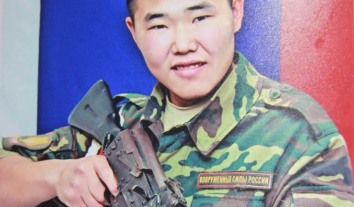Ukrainians, Russians, Chechens most often insulted by media in 2014 – research
The monitors recorded 173 cases of hate speech in printed media, 135 cases in online media, and 116 cases on television.
As the Human Rights Center Information correspondent reports, this was announced by Maksym Butkevych, the co-coordinator of the “Without Borders” project of the NGO “Center for Social Action” while presenting the results of the hate speech monitoring in the Ukrainian media in 2014.
The journalists often quote the xenophobes rather than express such their opinions, the experts say.
The experts monitored the news in the Ukrainian online media, 15 printed media and analyzed the evening news on seven TV channels.
“We considered the quotations containing xenophobic statements to be the cases of hate speech,” the human rights activist said.
Sometimes, the journalists quoted such statements of the speakers with approval, sometimes with conviction, but that idea was spread nevertheless.
The quotation of xenophobic statements is the most common in all the studied media segments. Especially when it refers to Russians, Ukrainians, and Chechens.
For example, the human rights defenders were surprised to see so many quotations of the Russian officials and the leaders of the “DPR” and “LPR” in the Ukrainian media. It was mostly the attempt to inform about the stupid things said by some people.
The majority of the journalists’ own opinions concerned members of the LGBT community, dark-skinned people, and women.
The lowest use of hate speech was recorded in January-February 2014. The rise was observed in spring, after the occupation of Crimea and the first wave of migration.
Some monitoring results were unexpected for the human rights activists, Butkevych said, “For example, there were no refugees and migrants among the hate speech targets.” However, the results would have been different if the monitoring period had covered Ukrainian media statements about bashing Asian migrants in Moscow, the migrant crisis in Europe or the terrorist attacks in Paris.
Editor-in-chief of the Ukrainian Hromadske Radio Kyrylo Lukerenko said that their media employees were required not to use insulting expressions. However, he recognized that the journalists did not always manage to perceive events without emotions.
























